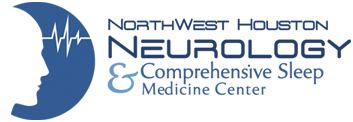EMG and NCS
An electromyography (EMG) uses very thin needle electrodes, which are inserted into the muscles of interest in order to listen to the muscle’s electric activity. The test can assist in determining whether an injury to the nerve root exists.
A Nerve Conduction Study (NCS) involves a series of small electrical shocks administered to the nerves of the extremities. The test is useful in determining where a peripheral nerve has been compressed.
These two tests are almost always performed together and are recommended for patients with the following conditions:
- Numbness or tingling in the back, neck or any extremities (except face)
- Carpal tunnel syndrome
- Tarsal tunnel syndrome
- Cervical root lesions
- Neuropathy
- Myopathy
- Radiculopathy
- Lumbosacral root lesions
- Muscle weakness
Instructions Prior to Test
- If you need to reschedule or cancel your test, contact us at least 24 hours in advance to avoid a NO SHOW fee.
- Dress in loose clothing. You must be able to pull your sleeves above your shoulder and your pants or shorts to mid-thigh.
- Do not come to your EMG with any lotions, creams, or deodorants on your skin.
- Be prepared to miss at least one half-day of work or school the day of your EMG as the procedure may take thirty minutes to two hours, depending on the complexity.
- You will not receive anesthetic or sedation during the procedure, so it is safe to eat the night before and the day of your procedure.
- You must obtain an authorization or referral from your primary care physician if it is required by your insurance company. Please contact your primary care physician and insurance company after scheduling the procedure to determine if an authorization will be required.
- Some insurance companies, especially Medicare HMO plans, require we perform an evaluation before they will provide authorization for an EMG. This means you will be asked to schedule two appointments: one for the initial evaluation, and the other for the EMG.
- The patient share will be collected prior to your procedure. We will make every attempt to determine your cost, but please be aware that the amount we collect from you is only an estimate. You may have a balance or credit after your insurance processes our claim. It is ultimately your responsibility as the patient to be aware of your benefits and costs, so please contact your insurance directly if you have concerns regarding the cost of the procedure.
After the Test
- You may return to work and normal activities immediately following the procedure.
- The pain after the procedure, if any, is usually very mild. You may take extra-strength Tylenol for any discomfort.
